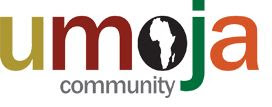This summer, tomorrow, in fact, I am attending the UMOJA Summer Learning Institute, a five-day training session for professors who teach in in the UMOJA Community, a statewide initiative for community colleges to help increase graduation and transfer rates of African and African American students.
Working with a teachers from all over California, our team from Southwestern College (the counselor/coordinator and myself, the English teacher) will develop curriculum and receive training that aligns our program with the statewide UMOJA program. Those of you who know me know I am passionate about professional development, so I am happy for the opportunity to make my teaching more effective. And, like a student super excited before the first day of school, I'm full of anticipatory anxiety. Can't sleep. So, lemme practice what I preach in class and do a little writing about what I'm learning - to warm up for the Summer Learning institute!
We've already had a reading assignment: Read bell hooks; Teaching to Transgress: Education as the Practice of Freedom (done!) and Joy DeGruy's Post Traumatic Slave Syndrome (taking it to bed tonight finish . . . hopefully).
This is the second time I've read Teaching to Transgress. But I'm not bragging because when I first read her book sixteen years ago, before becoming a classroom instructor, I didn't "get it." I got what she was saying theoretically, but now with actual practice under my belt, I have a deeper, more experiential understanding of her ideas. Talk about praxis. Shoot - now I get what she (and Paolo Freire, another author I didn't get the first time around) mean when they use the term "praxis!"
For most every concept hooks unpacked, I could think of moments in my own teaching that illustrate her ideas or where her ideas could help me improve my craft. I'm curious how we will use hooks' text, and look forward to doing more discussion and written reflection on her ideas as they pertain to our practice.
I'm familiar with DeGruy's work; it's one of those books I've been meaning to read. And reading it is knocking me out. According to DeGruy, post traumatic slave syndrome is the "multigenerational trauma together with the continued oppression and absence of opportunity to access the benefits available in society." (121). Her work parallels theories about multigenerational and intergenerational trauma experienced in the Jewish Holocaust and the genocide of Natives.
I'm finding so many echoes and call-backs to other books I've either read or am reading that DeGruy's ideas clarifies, extends, or complicates. Several books I started reading just before I picked up DeGruy's are Ta-Nehisi Coate's Between the World and Me, Christopher Emdin's For White Folks Who Teach in the Hood. Zaretta Hammond's Culturally Responsive Teaching and the Brain, and Jeff Duncan-Andrade's The Art of Critical Pedagogy: Possibilities for Moving from Theory to Practice in Urban Schools (officially humble-bragging).
I look forward to finishing all the books so I can hunker down and map all the ways these texts talk to each other, perhaps so I can better articulate my own beliefs about teaching. For now, here are big overlaps I see so far:
I look forward to finishing all the books so I can hunker down and map all the ways these texts talk to each other, perhaps so I can better articulate my own beliefs about teaching. For now, here are big overlaps I see so far:
- Coates' text poignantly illustrates the "vacant esteem" manifested by those afflicted with this type of trauma: "the state of believing oneself to have little or no worth, exacerbated by the group and societal pronouncement of inferiority" (125).
- Emdin's and Hammond's texts speak on the importance of "recognition," of being seen. Their text echoes what DeGruy says about African and African American culture, how interpersonal connection is highly valued, how "seeing" each other is key to building healthy communities.
- Finally, though I've only read the introduction to his book, I have seen a TEDTalk by Jeff Andrade and he did speak at one of our professional development days. I know enough to see how Andrade and DeGruy both make strong cases for looking at African Americans and urban poor through the lens of trauma.
The bullet items above, plus the scribblings I've made about hooks' book, index where I am as the Summer Learning Institute begins. They only begin to sketch out where I begin. I hope that over the course of the program, I am able to devote a little bit of time to think through what I'm learning. Perhaps to practice what I preach about reading, writing, and learning!



No comments:
Post a Comment